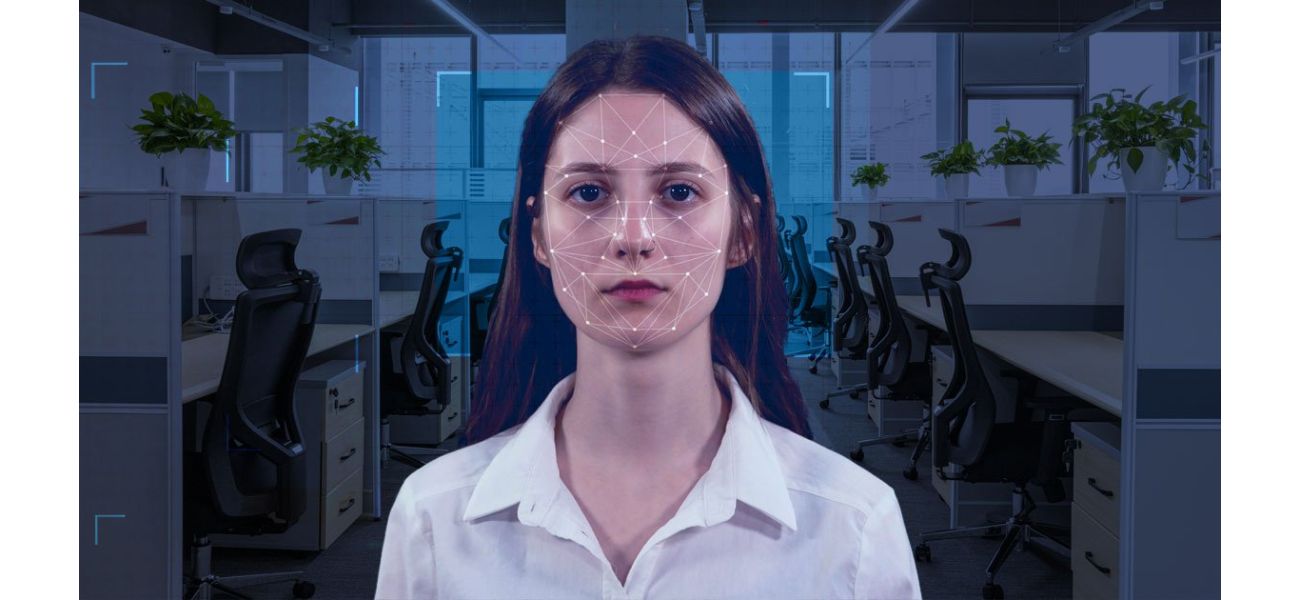Office employees may be subject to constant surveillance with the potential implementation of all-day filming at their desks.
BT is developing technology for facial recognition to continuously authenticate employees while also monitoring for fatigue and stress.
September 22nd 2024.

In the world of office work, technology is constantly evolving and changing the way we operate. One such development is the concept of "continuous facial authentication," which involves employees being scanned by cameras while they are logged onto their computers. While many people may already feel drained from spending long hours on video calls, this new software takes it a step further by continuously monitoring workers for both security and potential well-being concerns.
The software works by using a webcam or front-facing camera to constantly film employees and compare their facial features to an expected standard. This not only improves cybersecurity by ensuring only authorized workers have access, but it also has the potential to track their emotions in real-time. This controversial feature uses artificial intelligence to detect signs of fatigue or stress and can even send alerts to employees to take breaks when needed.
BT, a company known for its cutting-edge technology, has already conducted trials of this continuous authentication software at their science campus near Ipswich. At their recent cybersecurity festival, they showcased a demonstration of the technology and some teams will begin using it for further testing next month. This technology is a step up from the commonly used facial recognition software, as it provides continuous monitoring instead of just being used at login.
The potential benefits of this technology are vast, including enhanced security and protection of sensitive information. For example, if a laptop is stolen while unlocked, access to sensitive systems would still be impossible if the person's biometrics do not align. However, the idea of being constantly monitored, even if it is by AI and not a human, may make some employees uncomfortable. The thought of being watched while eating at their desk, yawning, or simply working may cause feelings of awkwardness or loss of privacy.
BT's former British Intelligence Officer, Ben Owen, warned that cybercriminals are becoming increasingly sophisticated and companies must adapt to stay ahead. He shared that BT detects around 2,000 potential cyber-attacks every second, and this number is only increasing. Businesses are now in an "arms race" to protect their customers and data, and this technology could be a valuable tool in that fight.
While the technology is still in the proof-of-concept stage, it has already sparked debates about privacy and potential discrimination. Some worry that the "emotion recognition" aspect of the technology could lead to inaccurate judgments and discrimination against employees. In response to these concerns, BT has stated that their trials only focus on authenticating the user and not the emotional analysis aspect.
The rise of workplace surveillance technology has raised legal and ethical concerns, with some calling for a ban on these practices. Civil liberties and privacy organizations have expressed the need for legislation to protect workers from excessive surveillance and potential exploitation. BT has responded by stating that their focus is on using this technology for security purposes, but it is still too early to determine how it will be commercialized in the future.
In the end, the continuous authentication technology has the potential to greatly benefit companies in terms of security and employee well-being. However, it also brings about concerns regarding privacy and potential misuse of personal data. As technology continues to advance, it is important for companies to carefully consider the impact on their employees and ensure that their rights are protected.
The software works by using a webcam or front-facing camera to constantly film employees and compare their facial features to an expected standard. This not only improves cybersecurity by ensuring only authorized workers have access, but it also has the potential to track their emotions in real-time. This controversial feature uses artificial intelligence to detect signs of fatigue or stress and can even send alerts to employees to take breaks when needed.
BT, a company known for its cutting-edge technology, has already conducted trials of this continuous authentication software at their science campus near Ipswich. At their recent cybersecurity festival, they showcased a demonstration of the technology and some teams will begin using it for further testing next month. This technology is a step up from the commonly used facial recognition software, as it provides continuous monitoring instead of just being used at login.
The potential benefits of this technology are vast, including enhanced security and protection of sensitive information. For example, if a laptop is stolen while unlocked, access to sensitive systems would still be impossible if the person's biometrics do not align. However, the idea of being constantly monitored, even if it is by AI and not a human, may make some employees uncomfortable. The thought of being watched while eating at their desk, yawning, or simply working may cause feelings of awkwardness or loss of privacy.
BT's former British Intelligence Officer, Ben Owen, warned that cybercriminals are becoming increasingly sophisticated and companies must adapt to stay ahead. He shared that BT detects around 2,000 potential cyber-attacks every second, and this number is only increasing. Businesses are now in an "arms race" to protect their customers and data, and this technology could be a valuable tool in that fight.
While the technology is still in the proof-of-concept stage, it has already sparked debates about privacy and potential discrimination. Some worry that the "emotion recognition" aspect of the technology could lead to inaccurate judgments and discrimination against employees. In response to these concerns, BT has stated that their trials only focus on authenticating the user and not the emotional analysis aspect.
The rise of workplace surveillance technology has raised legal and ethical concerns, with some calling for a ban on these practices. Civil liberties and privacy organizations have expressed the need for legislation to protect workers from excessive surveillance and potential exploitation. BT has responded by stating that their focus is on using this technology for security purposes, but it is still too early to determine how it will be commercialized in the future.
In the end, the continuous authentication technology has the potential to greatly benefit companies in terms of security and employee well-being. However, it also brings about concerns regarding privacy and potential misuse of personal data. As technology continues to advance, it is important for companies to carefully consider the impact on their employees and ensure that their rights are protected.
[This article has been trending online recently and has been generated with AI. Your feed is customized.]
[Generative AI is experimental.]
0
0
Submit Comment





